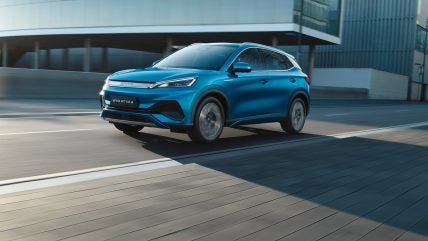
New vehicle sales in Indonesia fell by 8% to 74,160 units in July 2024 from 80,416 units a year earlier, according to wholesale data compiled by automotive industry association Gaikindo.
The market had been in decline for over a year, after rebounding strongly in the previous two years from the pandemic lows. Domestic sentiment had weakened this year as purchasing power continued to be eroded, with consumers increasingly shunning large purchases. Bank Indonesia had hiked its benchmark interest rate to 6.25% from a low of 3.5% two years ago, as it focused on containing inflation and supporting the rupiah.

Discover B2B Marketing That Performs
Combine business intelligence and editorial excellence to reach engaged professionals across 36 leading media platforms.
The vehicle market declined 17% to 484,236 units in the first seven month of 2024 from 586,401 in the same period of 2023, with sales of passenger vehicles falling 16% to 376,229 units while commercial vehicle sales plunged 22% to 108,007 units.
Toyota sales fell 18% to 156,928 units year to date (YTD) while deliveries by its subsidiary Daihatsu were down 14% at 99,344 units; Honda 53,838 units (-37%); Mitsubishi 42,129 (-6%); and Suzuki 38,543 units (-18%).
Overall vehicle production in the country fell 19% to 671,371 units YTD while exports of assembled vehicles dropped 11% to 258,766 units.
Battery electric vehicle (BEV) sales amounted to 18,160 units in the first seven months of the year, most of which were low cost Chinese models. The best seller was the 38kWh Wuling Binguo small car priced from IDR317m (US$19,950) with 3,740 deliveries YTD, with the company also selling 1,250 Air battery powered microcars. BYD delivered 3,520 BEVs since it launched sales operations in June while Chery delivered 3,040 Omoda E5s, followed by Hyundai and SAIC Motor.
Hyundai began sales of the locally-produced Kona Electric small SUV last month, powered by batteries produced at its local joint venture plant with LG Energy Solution. GAC Aion’s local distributor Indomobil also launched sales of the Y Plus BEV in July.
Earlier this year the government said it was targeting 50,000 battery electric vehicle (BEV) sales in 2024, after it extended the sales tax discount (from 11% to 1%) on BEVs until the end of 2024 to stimulate demand and help attract inward investment. It has also suspended the import duty on BEVs until the end of 2025 for companies investing in local production.
China’s Hozon Auto began local assembly of its Neta V-II BEV in July, after its Neta V went on sale in the country in the fourth quarter of 2023. The company confirmed it is targeting local content of 60% and plans to export to other right-hand drive markets in the region. BYD and Vietnam’s VinFast also plan to build BEV assembly plants in the country.






